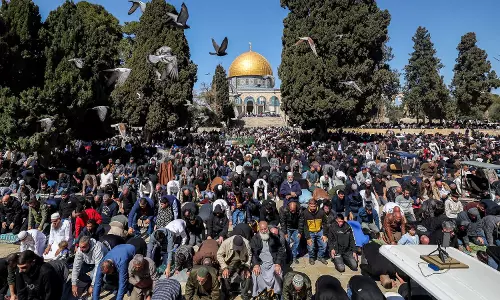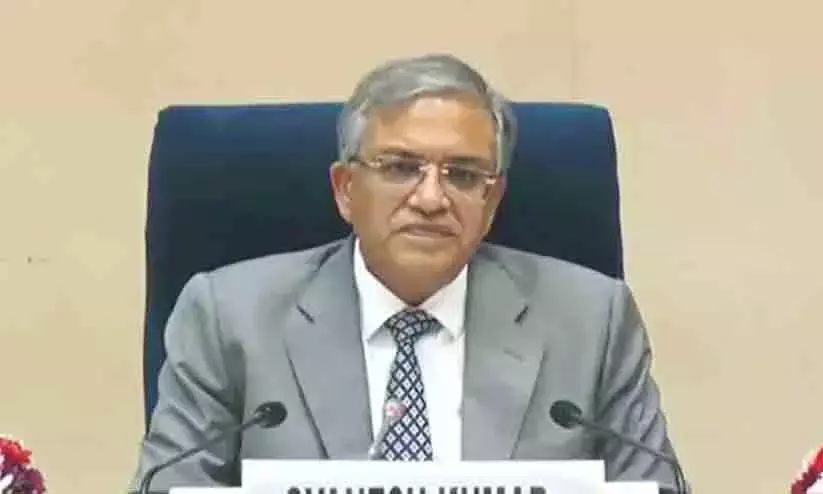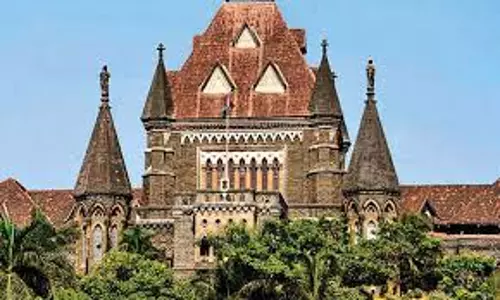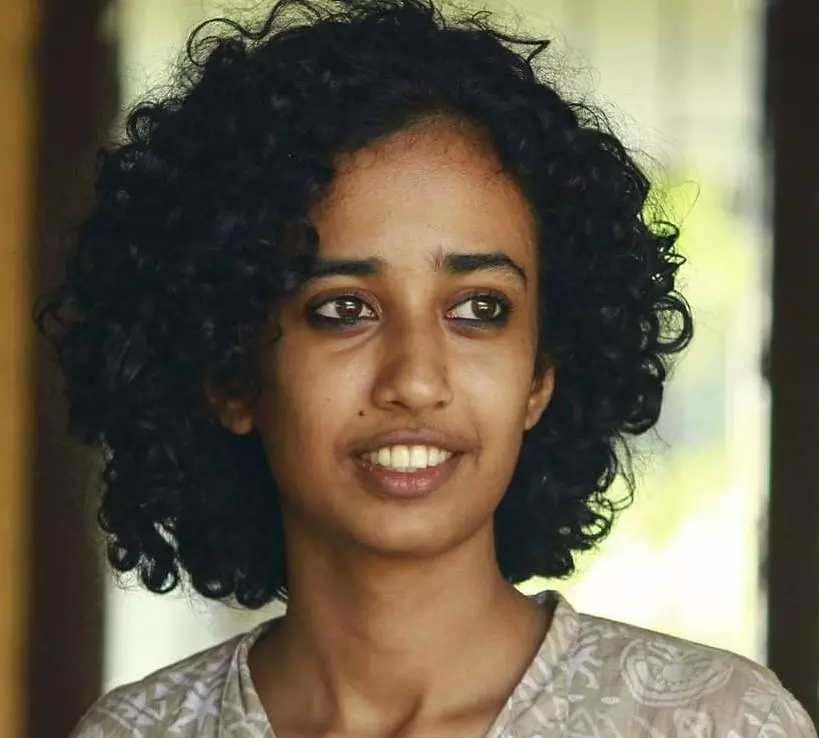
Use of Pegasus spyware cites India becoming a Spy state: Former Police officials
text_fieldsThree retired police officers held a press conference to address the state's use of Israel's Pegasus spyware in planting shreds of evidence on devices of activists, advocates, and professors accused in the Elgar Parishad conspiracy case 2018. Julio Riberio (former DGP, Punjab and Gujarat), Vikash Narain Rai (Former DGP of Haryana), and SR Darapuri (Former IG of Uttar Pradesh) raised concerns regarding state surveillance, spying, evidence planting and the challenges it poses upon the Indian polity, not just on individuals targeted. Delhi University professor Apoorvanand moderated the online press conference.
'Use of Pegasus spyware cites India becoming a Spy state.'
Julio Riberio said that no one should be charged for crimes that are not committed. He urged the ASPs to make sure that the police officials are not filing FIRs on fake evidence. "In the Bhima Koregaon case, the Pune rural police station had first arrested right-wing leader Milind Ekbote, one of the instigators of violence. Sambhaji Bhide, who is popularly known as Bhide Guruji, wasn't even arrested. Then Pune city police registered this case against left-wing activists. I had enquired with the Commissioner of Police who did it, and he said he looked into the evidence and found it very sound. Arsenal Consulting sounded clear to me and convincing. Father Stan Swamy had registered many complaints with the police. Maoists do not believe in the jurisdiction of the state, and those things had confused me. Why is the government saying foreign experts are not acceptable? If we do not have the expertise to do it, somebody else will do it," he said.
Julio Ribeiro stated that such practices "give a very wrong message to the police leaders. Suppose the political authorities condone it or encourage it. In that case, the message reaches those who are interested only in their careers, and not in what they were recruited for - to be a part of the judicial system and to dispense justice." He also noted that the continued jailing of the Bhima Koregaon accused "is a total injustice. These people have been kept in jail without a trial because of the UAPA [Unlawful Activities (Prevention) Act]."
Vikash Narain Rai pointed out that the "planting of evidence'' is an outright crime. Be it police or the Intelligence Bureau, planting evidence is criminal." He said that in this case, the suspicion becomes stronger "because, despite media hue and cry, NIA is not clearing it out." He also noted that the Maharashtra state police should also be held to account for their role. He stressed it by pointing at the fact that the accused belongs to different states, and the state governments themselves can deal with cases; instead, there was a centralized move by the Pune police.
Stating how illegal it is for a state system to spy on a citizen arbitrarily, like how it happened in the Elgar Parishad case, former IG of Uttar Pradesh SR Darapuri said that the Elgar Parishad case has no legal basis. "Spying needs legal authorization by the state secretary. You have to give an application citing the crime and the purpose for which the surveillance is needed. If the crime is sufficient and justified, the home secretary allows for telephone tapping. If this is used in the wrong case, the home secretary and telecommunication secretary can review the permission. In the IT Act passed in 2000, section 69 gives intersecting power to state and central agencies to spy on citizens," he explained. This power is specific for a person in a limited period, a maximum of two months.
Section 69 of the IT act gives the state power to intercept, monitor, or decrypt any information through any computer resource. The intention of any state government or the union government to intercept communication of a citizen is to monitor it for the security of the state, sovereignty or integrity of India, defence of India, or friendly relations with foreign states. In such a case, the citizen has to provide access to the device or provide information stored in their computer. SR Darapuri explained how in the Elgar Parishad case, the state resorted to the extent of using spyware, something beyond the state's jurisdiction.
"The government has failed to prove it followed the legal process for using spying software. It is unjustified and illegal. Such illegal spying should be public outrage and requires an immediate high-level inquiry. The government is not admitting this violation of the right to privacy. There must be an inquiry on this based on various SC judgments based on the right to privacy, and the Supreme Court has to give notice to the government against this violation of privacy," he said.
"Father Stan is dead. They planted evidence on my husband's computer. They attacked my phone using Pegasus. The Arsenal reports have shown that all the so-called evidence has been planted on the computers of the accused. With all the so-called evidence shown to have been fabricated, there is nothing left in the case. So, who will take responsibility for every additional day that the accused has to spend in jail?" Minal Gadling, the wife of Advocate Surendra Gadling, asked on a concluding note.
The key evidence cited against the accused by both the police and institutionalized media was a series of letters/documents ostensibly found on the accused persons' hard drives, especially the hard drive of Rona Wilson. In 2020, lawyers for the accused contacted Arsenal Consulting, using the American Bar Association as their liaison, to analyze the cloned copies of the hard drives of Rona Wilson and Surendra Gadling. Between February and July of this year, Arsenal released three reports, analyzing forty-eight files cited in the charge sheets as the main evidence against the accused. Report 1 analyzed ten files from Rona Wilson's hard drive that are cited in the charge sheets. Report 2 analyzed an additional 24 files from Wilson's hard drive, while Report 3 analyzed fourteen files from Gadling's hard drive. All 48 files, the prosecution's key evidence as cited in the charge sheets, were found to have been planted on these hard drives by an attacker with extensive resources using a Netwire Remote Access Trojan. Further, Arsenal was able to clearly establish that neither Wilson nor Gadling had ever opened or interacted with the documents planted in hidden folders on their hard drives. The fabrication of this case has exposed the arbitrary lawlessness the union government carries out. In a way, the case is path-breaking from the state's perspective, where many such cases followed after the Elgar Parishad case.
It is to be noted that the government framed a case to criminalize the commemoration of a pre-independent Dalit victory against the dominant caste Peshwa dynasty of the Maratha empire in 1818. Also, the violence by RSS groups on the commemoration at the Vijaya Sthambh was reported by a major section of the media as a clash. Still, testimonies of Ambedkarites, eyewitness accounts and some media reports record it as one-sided caste violence upon the Dalit community.
Milind Ekbote, the president of Dharmaveer Sambhaji Maharaj Pratishthan and Samasta Hindu Aghadi, is accused in the violence case and eighty-eight years Sambhaji Bhide. The Pune native has had a history of inciting caste, communal violence in the region since the 1980s and several FIRs are registered against him. In the Bhima Koregaon violence case, Ekbote was arrested in March 2018, but he received bail from Pune district and sessions court in a month. Ground reports stated that the shops were forcefully shut before the gathering at the Vijaya Stambh (victory tower). The shop owners were asked "not to give even a drop of water" to those who come to Bhima Koregaon. Rahul Fatangale, a youth, was killed during the violence. Following the violence, women, children and youngsters were arrested, and fines were imposed on them to damage public property. In April 2018, Puja Sakat, a 19 years old Dalit girl who witnessed her house being burnt down, was found dead inside a well after continued pressure to withdraw the statement given to police.






















